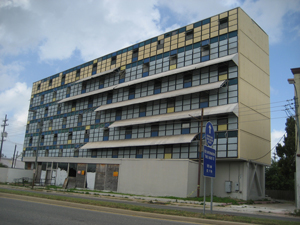-Staff Writer-

(FinalCall.com) – The Washington family knew home ownership was light years away. Unemployment and bad credit had left them barely able to do more than join the legions of renters across America. Then it hit them, they were barely making enough to even rent.
“It’s just really hard out here,” James Washington told The Final Call. “I lost my job and then my wife lost her job. I’m working now and she has a part time job. We have four kids. A one bedroom just won’t do but that’s about all we can afford.”
The Washington’s are a prime example of new research that shows American renters on average must earn at least $18.46 an hour to afford a modest apartment, yet the average renter makes just $13.52 an hour according to “Out of Reach 2011,” a report released annually by the National Low Income Housing Coalition.
The study shows the mismatch between the rents available across the country and what low income renters can afford.
According to the coalition, more than 38 million households rent their homes, 1.9 million more than in 2007. The current rate of homeownership (66.5 percent) is now at the lowest level since 1998.
With the foreclosure crisis and recession on the one hand, an aging baby boomer population, and post baby boomers coming of age, the demand for rental housing is projected to grow.
“This year’s Out of Reach report is a reminder that millions of Americans are still waiting for economic recovery,” said Senator Tim Johnson (D-S.D.) in the preface of the report. “People burdened by unaffordable housing have less money for other essential needs like transportation, food, and medicine–leaving too many families facing impossible choices at the end of every month.”
High unemployment, falling wages, and low rental vacancy rates driven by a post-recession return to renting have combined to put housing stability beyond the grasp of low income households across the country, according to the report.
“Another problem is that just as we’re looking for a place in D.C., so are lots of other families who have experienced the same problems we have like unemployment,” said Sharron Washington.
According to the report, in the District of Columbia, the average rental rate for a two-bedroom apartment is $1,461-a-month. In order to afford this rent and utilities, without paying more than 30 percent of income on housing, a household must earn $4,870 monthly or $58,440 annually. Assuming a 40-hour work week, 52 weeks per year, this level of income translates into a housing wage of $28.10-an-hour.
However, in D.C., a minimum wage worker earns an hourly wage of $8.25. In order to afford the Fair Market Rent for a two-bedroom apartment, a minimum wage earner must work 136 hours per week, 52 weeks per year. Or, a household must include 3.4 minimum wage earners working 40 hours per week year-round to afford a two bedroom, said the report.
According to Out of Reach 2011, the national two-bedroom average rent is $960 per month. A household must earn $38,400 annually in order to afford that rent, the report said. Other key findings include:
The two-bedroom housing wage tops $30 in Hawaii, and is over $20 in seven states, California, Maryland, New Jersey, New York, Connecticut, Massachusetts and Arkansas.
In 2011, the estimated average wage for renters in the United States is just $13.52, a significant decline from $14.44 in 2010.
At the federal minimum wage of $7.25, a household would have to work 102 hours each week to afford the national average for a two-bedroom home.
Much attention has been paid to the effect of unemployment on foreclosure rates. But the central finding of this report is that the housing crisis is the most severe for low income people.
“Out of Reach 2011 shows that simply having a job doesn’t guarantee you will be able to afford even to rent,” said Sheila Crowley, president and CEO of the National Low Income Housing Coalition. The coalition has called on Congress to fund the National Housing Trust Fund, which would provide communities with funds to build, rehabilitate, and preserve rental homes to end the housing struggle of low-income people. This program is not yet funded.












